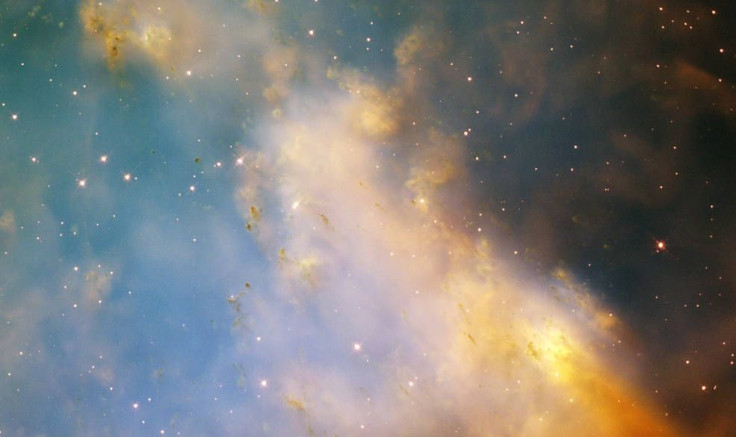NASA Shares Stunning Image Of Cosmic Dumbbell In Space

NASA has shared a beautiful image of a bright and massive nebula that was left behind by a dying star. According to the agency, the object is so bright that it can be spotted from Earth with just a pair of binoculars.
The latest photo shared by NASA features Messier 27, which is more commonly known as the Dumbbell Nebula due to its shape. The image was captured by the agency’s Chandra X-ray Observatory. As noted by NASA, Messier 27 lies within the Vulpecula constellation and is about 1,200 light-years from Earth’s neighborhood.
According to NASA, Messier 27 is officially classified as a planetary nebula. NASA noted that despite its classification, this does not automatically mean that the nebula is as big as a planet. Instead, planetary nebulas are formed after an old star reaches the end of its life. Once this happens, its outer shell filled with ionized gas will expand.
In the photos taken by NASA of Messier 27, the various colors represent the different gasses and elements within the nebula.
“Spotted by Charles Messier in 1764, M27 was the first planetary nebula ever discovered,” the agency explained in a statement. “The term ‘planetary nebula’ is a bit of a misnomer based on the nebula’s round, planet-like appearance when viewed through smaller telescopes. The nebula is the result of an old star that has shed its outer layers in a glowing display of color.”
NASA stated that the Sun within the Solar System will most likely end up like Messier 27 once it dies. It will not cause a supernova event or turn into a black hole simply because it is not massive enough to do so.
NASA noted that Messier 27 is one of the brightest objects in space from Earth’s perspective. In fact, it can be viewed even with just a pair of binoculars. According to the agency, Messier 27 is visible especially during clear and dark sky conditions. For sky gazers, they’ll be able to see Messier 27 just above Sagitta, which is a small but distinct constellation that appears in the northern sky.
© Copyright IBTimes 2024. All rights reserved.





















